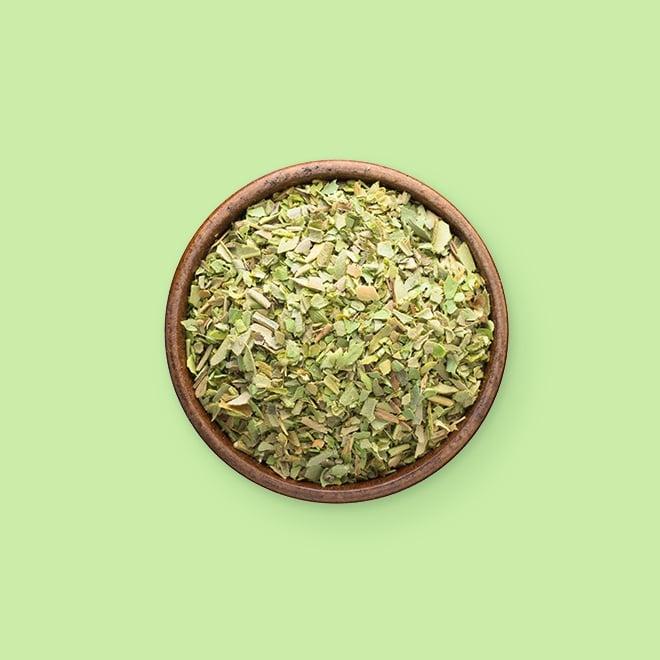Oregano




Oregano dates to before 400 BC, when the ancient Greeks used it in marriage and funeral ceremonies. The Greeks believed Aphrodite created oregano to symbolize happiness, luck, and peace. After the Romans conquered Greece, they learned about the uses of oregano and popularized the herb throughout Europe. Eventually oregano came to Asia after 150 BC, where it was primarily used to treat fever, diarrhea, and vomiting. Today, oregano is commonly used to season tomato sauces, meats, and soups!
Oregano can be used fresh and dried. If the oregano is fresh, like all greens, avoid any oregano that is no longer its original vibrant green.
To store fresh oregano, wrap tightly in plastic and store in the refrigerator.
If stored properly, fresh oregano can last up to a week.
If stored in a container in a cool, dry environment, dried oregano can be consumed for anytime up to a year before going stale.
Mashing and rubbing oregano onto rashes, bug bites, and other skin irritants has shown to reduce inflammation.
Oregano oil can be used to prevent yeast infections, fungal infections, and gum disease.
Oregano tea or a pinch of oregano added to other teas can help clear many sinus and stomach ailments.
Although oregano oil is extremely useful, it is highly concentrated with thymol and carvacrol, which is why it is advised to mix in a 1 to 1 ratio with olive oil and only use a few drops of pure oregano oil in any situation. Oregano is also a rich source of antioxidants, which stimulates the immune system.
Use to season tomato sauces, meat, and soups for a great robust flavor that will remind you of Mediterranean flavor.
Adding a squeeze of lime juice to a dish that already uses oregano brings out oregano’s natural flavor. Try it on pizza!
Like any herbs, oregano leaves lose their flavor a short while after being cooked, therefore, unless it’s used in a bouquet of herbs solely to flavor the dish, it is best to add the oregano in at the last few minutes of the cooking process.
While oregano has been used in a number of ways to treat ailments, it is also been suspected of being able to prevent and possibly treat cancer due to its high antioxidant properties. It can also be used to treat maladies ranging from gum disease and tooth decay to yeast and skin infections.
Corrections or improvements? Email us at
content@sidechef.com